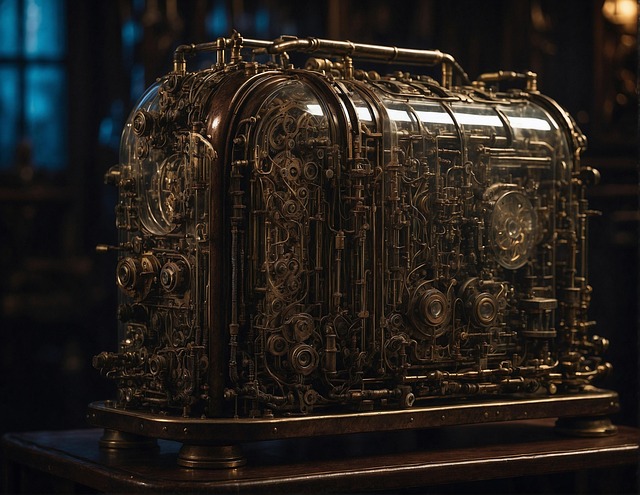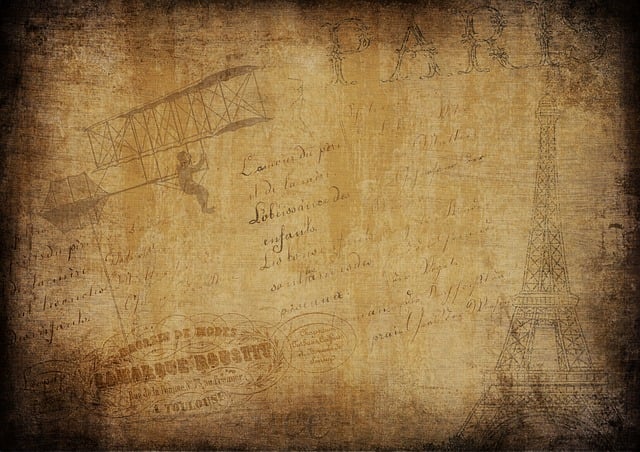Accurate patent translations are vital for scientists seeking UK intellectual property protection, as errors can lead to legal issues and lost rights. Specialized translation services, employing linguistically skilled professionals with scientific expertise, ensure precise conveyance of complex terminology in patent applications. Adhering to stringent requirements, these translators maintain high accuracy standards, preserving the original document's intent and meaning. By utilizing advanced tools, rigorous quality control, and peer review, professional translators deliver clear, concise, and legally sound documentation for UK patents involving scientific inventions.
In today’s globalized world, accurate patent translations are paramount for inventors seeking protection in the UK. This article delves into the intricacies of ensuring precision in translating scientific invention patents for UK authorities. We explore the critical role of translation services, understand the stringent requirements of UK patent documentation, and assess the quality needed to meet these standards. By addressing common challenges and adopting best practices, inventors can navigate the process effectively, securing robust protection for their innovations. Key focus lies in leveraging specialized translation services tailored to the unique demands of scientific inventions in the UK market.
- Understanding the Importance of Accurate Patent Translations
- The Role of Translation Services in Scientific Invention Patents
- UK Authorities' Requirements for Patent Documentation
- Assessing the Quality and Accuracy of Translation Services
- Common Challenges in Translating Scientific Inventions
- Best Practices to Ensure High-Quality Patent Translations for UK Submission
Understanding the Importance of Accurate Patent Translations

Accurate patent translations are paramount in the world of scientific inventions, especially when navigating the intricate processes of UK authorities. When a scientist or inventor seeks protection for their groundbreaking ideas and innovations, they must ensure that every detail is conveyed clearly and precisely. This is where professional translation services come into play, specifically tailored for UK patents and scientific documents.
The significance of exact translations cannot be overstated, especially with the global nature of research and development. A single misstep in translation can lead to misunderstandings, potential legal issues, or even the loss of intellectual property rights. Therefore, when it comes to patent applications and documentation, only the most reliable and specialized translation services should be trusted. These services employ experts who not only possess a deep understanding of scientific terminology but also have extensive experience in navigating complex legal frameworks.
The Role of Translation Services in Scientific Invention Patents

The accuracy and quality of translations play a pivotal role in the success of patent applications, especially for scientific inventions seeking protection in the UK. When it comes to scientific patents, where complex terminology and intricate ideas are involved, professional translation services become indispensable. These services ensure that the intricate details, technical nuances, and unique terminologies specific to various scientific disciplines are conveyed precisely in the patent documentation.
Translation errors can lead to misunderstandings, misinterpretations, or even rejections of patent applications. UK authorities demand high accuracy standards for patent translations as they scrutinize every aspect of submitted documents. Reputable translation services catering to UK patents for scientific inventions employ linguists with specialized knowledge in their respective fields, ensuring that the translated content is not only linguistically correct but also conceptually precise. This meticulous approach guarantees that inventors’ ideas are protected effectively and that the patent application meets all formal requirements set by the UK Intellectual Property Office.
UK Authorities' Requirements for Patent Documentation

The UK authorities have strict requirements for patent documentation, especially when it comes to scientific inventions. Accurate and clear translations are paramount in ensuring that all application forms, specifications, and supporting documents are correctly interpreted and processed. This is crucial as even a minor error in translation can delay or even reject a patent application.
Translation services for UK patents for scientific inventions must meet specific standards to be considered acceptable. They should employ professional translators with expertise in both the technical field of the invention and language proficiency. The process often involves not just translating words but also ensuring that complex scientific terminology is accurately conveyed, preserving the intent and meaning of the original document.
Assessing the Quality and Accuracy of Translation Services

Assessing the quality and accuracy of translation services for UK patents involving scientific inventions is paramount. Professional translators must possess in-depth knowledge of both the source and target languages, as well as a solid understanding of patent law and terminology. They should employ specialized tools and databases to ensure precise translations that convey the original invention’s essence accurately.
Rigorous quality control measures are essential to guarantee the integrity of these translations. This includes proofreading, editing, and cross-referencing with industry experts. By adhering to these standards, translation services for UK patents for scientific inventions can maintain high accuracy levels, ensuring inventors benefit from clear, concise, and legally sound patent documentation.
Common Challenges in Translating Scientific Inventions

Translating scientific inventions, particularly for patent applications in the UK, presents a unique set of challenges. One of the primary difficulties lies in the complex and specialized nature of scientific terminology. Different disciplines have their own jargon, and ensuring accuracy requires an in-depth understanding of both the subject matter and the target language. For instance, terms related to biotechnology, nanotechnology, or artificial intelligence may not have direct equivalents, necessitating creative translations that convey the intended meaning precisely.
Another challenge is maintaining the clarity and coherence of technical descriptions. Scientific documents often contain intricate sentences and complex ideas, making it crucial for translators to possess strong analytical skills. They must be adept at breaking down complex concepts, translating them accurately, and then reassembling them in a way that makes sense in the target language. This process demands careful consideration of sentence structure, grammar, and even cultural nuances to ensure the translated patent application meets UK authorities’ stringent requirements for translation services.
Best Practices to Ensure High-Quality Patent Translations for UK Submission

To ensure high-quality patent translations for submission to UK authorities, several best practices should be followed when utilizing translation services for UK patents for scientific inventions. Firstly, select a reputable and experienced translation company with specialists in technical and legal translation. This is crucial as scientific inventions require precise terminology and nuanced language that only experts can capture accurately.
Additionally, remember to provide clear instructions and all relevant materials, including patent specifications, drawings, and any specific glossaries or terminology guides. These resources enable translators to maintain consistency throughout the document. Furthermore, consider a peer review process where a second translator checks the work of the first, ensuring minimal errors and maximizing accuracy. This meticulous approach aligns with the rigorous standards required for UK patent submissions.
When it comes to patent translations for UK authorities, accuracy is paramount. As discussed, scientific invention patents require meticulous translation services to ensure compliance with UK requirements. By understanding the challenges and implementing best practices, inventors can navigate the complexities of international patent submissions. Choosing reputable translation providers specializing in scientific documents is crucial, leveraging advanced technologies, and maintaining a rigorous quality control process. This ensures that patent documentation accurately represents the original invention, maximising the chances of successful approval. Thus, for those seeking to protect their innovative creations globally, prioritizing high-quality UK patent translations is essential.
